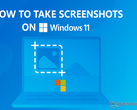In an industry where smartphones are often forgotten after a couple of software updates, one 2009 device earned a cult following for practically defying that fate. The HTC HD2 was a phone so ahead of its time and so hacker-friendly that it earned a reputation for running practically every operating system you could throw at it. From Android to Windows Phone, from Ubuntu to even a desktop Windows variant, the HD2’s journey is a whole saga of tech tinkering.
The HTC HD2 made its debut in late 2009 as a powerhouse flagship Windows Mobile 6.5 phone. Back then, its 4.3-inch display and 1 GHz single-core processor were considered enormous and “beastly” specs. It packed 448 MB of RAM and the first-ever Qualcomm Snapdragon chipset - pretty generous hardware that not only ran HTC’s own software smoothly, but left room for users to push the device’s limits. More importantly, HTC’s design philosophy at the time was fairly open, with an easily unlockable bootloader and even a microSD slot from which the phone could boot operating systems.
The HD2’s strong hardware foundation and open design set the stage for an incredible afterlife in the hands of enthusiasts. It launched with Windows Mobile (a platform on its last legs), which prompted many to experiment with loading other operating systems onto it. Within months, independent developers on forums like XDA were swapping out its clunky Windows Mobile software for early builds of Android.
By early 2011, the community got Windows Phone 7 (Microsoft’s brand-new OS at the time) running on the HD2, even though the device wasn’t officially supported for it. A custom bootloader called MAGLDR made it possible to boot alternative systems from the phone’s NAND memory or SD card. The HD2 quickly went from a mere Windows phone to a blank canvas for whatever software hackers wanted to try.
As the years went on, the list of operating systems successfully ported to the HTC HD2 kept growing - almost to absurd lengths. Name a mobile or mobile-adjacent OS from the past decade, and chances are the HD2 has run it. Android? Of course - every version from 2.2 Froyo through 4.0 Ice Cream Sandwich and up to 7.0 Nougat was unofficially booted on this phone. Windows Phone? Absolutely - the HD2 saw unofficial upgrades to Windows Phone 7.5 and even Windows Phone 8, courtesy of the community.
It didn’t stop there. People shoehorned in Ubuntu Linux (including Ubuntu Touch mobile builds), Nokia’s MeeGo, and even Mozilla’s short-lived Firefox OS onto the device at various points. In 2013, the HD2 got back into headlines again for running Windows RT, the tablet version of Windows 8 for ARM processors. This meant a 2009 phone was booting a variant of desktop Windows that came out almost three generations later. By the mid-2010s, even niche platforms like Sailfish OS and Tizen had been made to run (at least in experimental form) on the HD2. Only one ecosystem was truly out of the HD2’s reach - unsurprisingly, Apple’s locked-down iOS was the one OS that the HD2 could never emulate or port.
All this earned the HD2 a pretty fitting nickname in the community: "the phone that refuses to die." Whenever Google unveiled a new Android version or some developer announced a new OS, HD2 owners half-jokingly wondered, "So, when will it run on the HD2?" - somewhat similar to "But can it run Crysis?". The device’s ability to run more operating systems than perhaps any phone in history made it a legend, literally. It wasn’t always practical though - cramming newer OSes into an aging phone often meant certain features didn’t work or performance was slow. But that wasn’t the point; the HD2 served as a proof of concept and playground for modders. If you got the latest Android or an exotic OS booting on the HD2 (even if only semi-usable), you earned serious bragging rights.
It's interesting to think about why HTC HD2 fostered such devotion. Well, part of it was timing and talent. The phone arrived at a crossroads in mobile OS history - just as Windows Mobile was fading and Android rising - and its hardware was robust enough to handle those worlds. A passionate developer community developed around the HD2, sharing tools, ROMs, and more. HTC’s Leo (the HD2’s code name) became a common topic on forums like XDA-Developers, where every few months someone would announce a new milestone: Android Lollipop now running! Ubuntu dual-boot achieved! HTC Sense 5 from newer HTC phones back-ported!
Today, the HTC HD2 holds a well-deserved place in the smartphone hall of fame. You will likely not use one as your daily driver in 2025, since its specs are antiquated by modern standards, but the phone is very much alive in occasional conversations. A decade and a half later, the HD2 is fondly remembered as the ultimate modder’s phone, a cult classic that turned into a tech legend. It's good to know that a device can have a life far beyond what its creators imagined. The HTC HD2 may have started as a Windows Mobile handset, but it became so much more - a literal chameleon of a phone that ran everything it possibly could, and in doing so, left behind a legacy few phones have matched.
Source(s)
The Verge, GSMArena, PhoneArena, LinusTechTips, VHS, Reddit, Addictive Tips, TechRadar



























